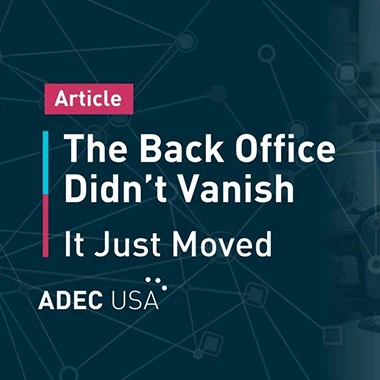In 2025, logistics operations are running faster than ever, but behind the scenes, a serious problem is slowing everything down. Skilled workers are in short supply, and the hiring gap is widening. From billing desks to compliance teams, logistics companies are struggling to fill roles that keep operations moving and revenue flowing.
To stay competitive, leaders need to understand what’s driving the talent crunch, and how smart outsourcing can close the gap without compromising performance.
A Tight Labor Market with Big Gaps
The U.S. unemployment rate is low, in April 2025, it was 4.1%. Still, there are over 7 million unfilled jobs. The transport, logistics, and automotive sectors are especially hard-hit. Around 76% of employers in these fields say they struggle to fill roles.
There’s a mismatch between what companies need and what job seekers want. This mismatch causes delays in hiring, puts pressure on teams, and drives up costs.
What Roles Are Hardest to Fill?
In logistics, many open jobs aren’t on the warehouse floor. They’re in the back office. These roles include:
- Finance and accounting support
- Customer service and claims
- Freight billing and auditing
- Document processing
- Data entry and reconciliation
These roles may not get much attention, but they are essential. Without strong support teams, invoices get delayed, records go unchecked, and cash flow suffers.
Why Workers Aren’t Lining Up
There are three major reasons the talent gap persists:
- The Workforce Is Aging
Many experienced logistics professionals are retiring. Replacing them is hard. Young professionals aren’t entering these roles fast enough. According to the National Bureau of Economic Research, the aging workforce is shrinking the labor pool just as demand for skilled roles grows.
- Job Expectations Have Changed
The pandemic changed how people view work. Workers want more flexibility and better work-life balance. But back-office logistics jobs often require strict hours and office-based tasks. This makes them less attractive to today’s workforce.
- Burnout and Turnover Are High
The logistics industry saw high stress levels during the pandemic. These pressures haven’t gone away. Workers face rising workloads and limited support. In 2023, 27% of U.S. employees left their jobs voluntarily. Many were in roles related to logistics and operations.
The Cost of Doing Nothing
Leaving these roles unfilled creates ripple effects across the business. Here’s how:
- Delayed billing slows down cash flow.
- Missed errors in freight invoices lead to lost revenue or customer complaints.
- Compliance risks rise without proper document tracking.
- Internal teams spend more time fixing issues instead of improving operations.
Beyond the average 2025 hiring cost of over $5,000 per employee – a figure that doesn't even account for training time or the risk of rapid turnover – the true financial drain of unfilled roles is substantial.
What Companies Have Tried
Some companies have raised wages. Others offer signing bonuses or remote work options. While these steps help in some cases, they don’t solve the core problem: there just aren’t enough skilled candidates.
Recruiting agencies can help for short-term needs, but the long-term solution needs to address cost, scalability, and expertise. That’s where outsourcing becomes a smart option.
Looking Beyond Traditional Hiring
Outsourcing isn’t just about cutting costs. It’s about filling roles that are getting harder to hire for, and doing it fast. Outsourcing firms like ADEC USA provide trained teams who focus on logistics back-office support.
This support includes:
- Freight bill audits
- Revenue application
- Address and parcel validation
- Document management
- Customer claims handling
These teams work around the clock and deliver high accuracy. Companies get the support they need without the struggle of local hiring.
What Impact Sourcing Offers
ADEC USA uses a right-shore approach. This means hiring skilled workers locally and in underserved areas like Cairo, Kenya, the Philippines, and Colombia. The workers receive training and ongoing support. The work creates jobs in regions that need them, and delivers real value to clients.
This model offers more than feel-good results. It provides:
- Lower attrition rates
- High service-level achievement (often over 99%)
- Strong accuracy (above 99%)
These outcomes are not just better than what’s possible in many in-house teams, they’re measurable.
Preparing for the Future
The labor gap isn’t going away soon. In fact, it may widen. As logistics operations become more data-driven, the need for specialized back-office skills will grow.
Companies that prepare now will gain an edge. Those who wait may find themselves paying more for slower results.
Key Takeaways
- The logistics labor gap remains a top issue in 2025, especially in support roles.
- The cost of hiring is rising, but the number of qualified candidates is not.
- Outsourcing fills critical gaps quickly, at lower cost, and with higher accuracy.
- ADEC USA uses impact sourcing to provide reliable, trained support teams with proven results.
Ready to fill your talent gap?
Explore how ADEC USA can provide the back-office support your logistics company needs, without the hiring hassle.
Visit our Logistics Hub| Read More Insights | Contact Our Team



